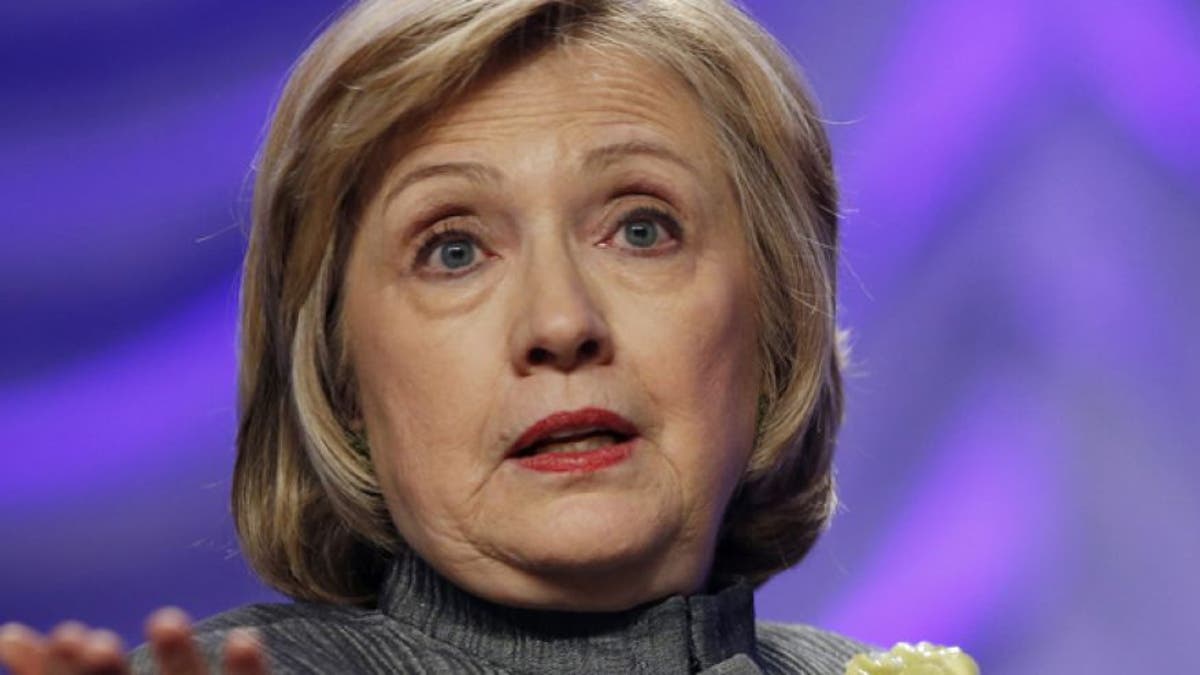
The reporter who broke the Watergate scandal wide open, Bob Woodward, says the Hillary email scandal reminds him of Nixon’s drawn out battle over the White House tapes 40 years ago. Just a few weeks ago Hillary Clinton seemed unstoppable: a shoo-in to win the Democratic nomination, and favored to win the presidency. Now there is open speculation that her candidacy is in trouble, and that she could be held criminally liable for mishandling highly classified documents – a crime that has sent lesser-known people to jail.
Woodward is right. Hillary’s troubles are taking on the tones of Nixon’s demise. I was a young staffer in the Nixon White House, working in the West Wing before, during and after the Watergate scandal. There are eerie similarities. In 1972, Richard Nixon was headed for a landslide re-election: his foreign policy successes were stunning -- the opening to China, arms control with the USSR, ending the Vietnam War -- and the economy was good.
But then the Democratic National Committee headquarters, in the Watergate office building, was broken into just before the election and files stolen. The burglars were traced back to several mid-level people on Nixon’s staff. Congress eventually formed a Watergate committee to investigate wrongdoing. The Justice Department created a special prosecutor with subpoena powers.
One by one my colleagues in the West Wing were brought in to testify publicly before Congress, and summoned to meet behind closed doors with the special prosecutor. Every week investigative reporters Bob Woodward and Carl Bernstein had a new story on the front page of the Washington Post, with details of the investigation.
One revelation involved a previously unknown Oval Office taping system that recorded the president’s meetings. The special prosecutor wanted Nixon to turn over those tapes. Nixon refused. In late July 1974 the Supreme Court ruled that Nixon had to turn over the tapes. There were hours and hours of tapes, but three seemed to implicate Nixon personally in the Watergate cover-up, and one ‘smoking gun’ tape condemned him.
Nixon’s support in Congress, which had waned for months, collapsed overnight. Suddenly the most powerful man in the world, who had been re-elected less than two years before in the greatest landslide in U.S. history, was forced to resign the presidency or face impeachment, trial and removal from office for “high crimes and misdemeanors.”
Nixon never went to trial or did jail time. His guilt was never proved, and recently released evidence indicates that the rush to indict Nixon was probably more about politics than policies. But Nixon’s presidency was over. On August 9, 1974, I walked from my West Basement office to the East Room to watch a man who had dominated American politics for a generation say farewell to the staff.
It was one of the most stunning political reversals in modern times.
For years, commentators have wondered why Nixon didn’t just destroy the tapes when he had the chance.
Today it seems like déjà vu all over again, to quote Yogi Berra.
Did Hillary Rodham learn from Nixon’s mistakes? Did Hillary Rodman Clinton think if she destroyed her email server, or wiped it clean, she could avoid Nixon’s fate? The problem is in the digital age nothing is permanently wiped away. Even if Hillary succeeded in deleting the emails, they probably exist on other people’s computers.
Why did Clinton have a private email system in the first place? Did she think by keeping her email and files under her control she could decide what to make public and what to keep out of prying eyes? She is famously rigorous about her statements and public image. Did she believe if she could control the historical record she could fashion her own legacy?
Why did Clinton, like Nixon, refuse to turn them over in the first place? Does she have something to hide? She claims the emails she did not turn over were personal, about her yoga schedule and her mother’s funeral. She claims they were deleted because of convenience. But she is the one who made that call, not some neutral third party. Nixon claimed his tapes were his property, too. He claimed the ones that were not turned over contained top secret national security information. Was Secretary Clinton trying to hide some wrongdoing? Are those missing emails about the Benghazi scandal? About a relationship between the Clinton Foundation donors and her decisions at the State Department?
Why has the administration suddenly reversed course to allow inquiries into Hillary’s emails? It’s hard to believe that in one of the most partisan administrations of all time, the sudden onslaught of Executive Branch investigations are an accident. She is now being investigated by three government agencies – The Justice Department, the State Department and the Intelligence Community. If so, why? Has someone at 1600 Pennsylvania Avenue concluded they do not want Hillary Clinton to succeed President Obama.
Will the investigations find any evidence of wrongdoing? Once special prosecutors are appointed, or congressional investigations begun, they always find something. Watergate, Iran-Contra, Whitewater.
Secretary Clinton has gone from saying she never received classified emails on her personal email account, to saying she never received emails that were marked classified. That’s a big leap. If they were classified, and someone deleted the classification, that’s an offense.
We are not at the end of investigations into Hillary Clinton. They are likely just beginning. Once the emails are recreated, which they will be with time, where will the trail lead?
It may not be as earth shattering as Nixon’s forced resignation from office in August 1974. But it could present Secretary Clinton with insurmountable difficulties in her quest to be the first woman President. The greatest irony of all? One of the staff members on the Watergate Committee that investigated Nixon’s files and tapes was a young lawyer named Hillary Rodham. Déjà vu, all over again.








































